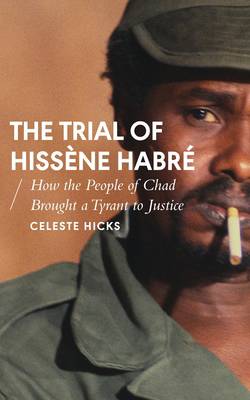
- Afhalen na 1 uur in een winkel met voorraad
- Gratis thuislevering in België vanaf € 30
- Ruim aanbod met 7 miljoen producten
- Afhalen na 1 uur in een winkel met voorraad
- Gratis thuislevering in België vanaf € 30
- Ruim aanbod met 7 miljoen producten
Zoeken
€ 38,95
+ 77 punten
Uitvoering
Omschrijving
When Hissène Habré, the deposed dictator of Chad, was found guilty of crimes against humanity in 2016, it was described as 'a watershed for human rights justice in Africa and beyond'. For the first time, an African war criminal had been convicted on African soil.
Having followed the trial from the very beginning and interviewed many of those involved, journalist Celeste Hicks tells the remarkable story of how Habré was brought to justice. His conviction followed a heroic 25 year campaign by activists and survivors of Habré's atrocities, which succeeded despite international indifference, opposition from Habré's allies, and several failed attempts to bring him to trial in Europe and elsewhere. In the face of such overwhelming odds, the conviction of a once untouchable tyrant represents a major turning point, with profound implications for African justice and the future of human rights activism globally.
Having followed the trial from the very beginning and interviewed many of those involved, journalist Celeste Hicks tells the remarkable story of how Habré was brought to justice. His conviction followed a heroic 25 year campaign by activists and survivors of Habré's atrocities, which succeeded despite international indifference, opposition from Habré's allies, and several failed attempts to bring him to trial in Europe and elsewhere. In the face of such overwhelming odds, the conviction of a once untouchable tyrant represents a major turning point, with profound implications for African justice and the future of human rights activism globally.
Specificaties
Betrokkenen
- Auteur(s):
- Uitgeverij:
Inhoud
- Aantal bladzijden:
- 232
- Taal:
- Engels
- Reeks:
Eigenschappen
- Productcode (EAN):
- 9781786991836
- Verschijningsdatum:
- 15/04/2018
- Uitvoering:
- Paperback
- Formaat:
- Trade paperback (VS)
- Afmetingen:
- 137 mm x 213 mm
- Gewicht:
- 294 g

Alleen bij Standaard Boekhandel
+ 77 punten op je klantenkaart van Standaard Boekhandel
Beoordelingen
We publiceren alleen reviews die voldoen aan de voorwaarden voor reviews. Bekijk onze voorwaarden voor reviews.








